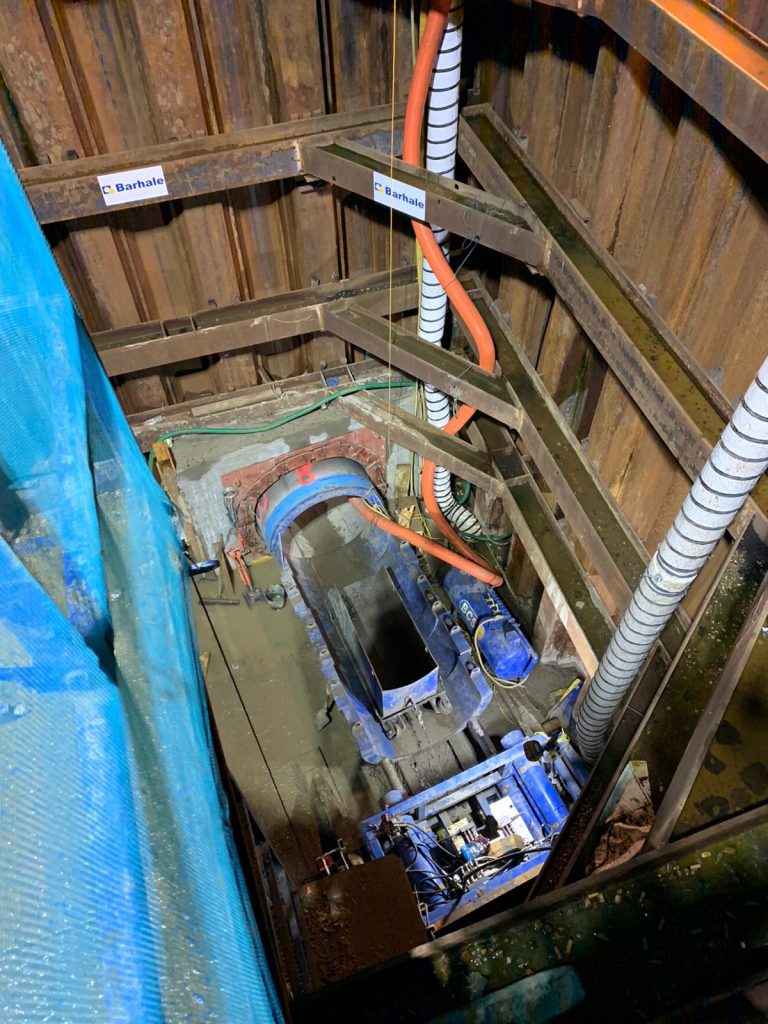First deployment of collapsible shield accelerates emergency works at Hersham
18th March 2020 A new approach to tunnel shielding is allowing Barhale to tackle challenging emergency works at Hersham in Surrey despite restrictive access, adverse weather conditions and a tight timeframe.
A new approach to tunnel shielding is allowing Barhale to tackle challenging emergency works at Hersham in Surrey despite restrictive access, adverse weather conditions and a tight timeframe.
The civil engineering and infrastructure specialist has been brought in by Skanska, MWH and Balfour Beatty (SMB), delivery partner for Thames Water’s eight2O alliance, to repair a collapsed sewer adjacent to the London – Woking railway line.
The £6.1M programme of works includes over-pumping of the sewer line from a wet well to a shaft beyond the collapse; excavating and constructing a cofferdam on top of the collapsed sewer; handjacking 50m of new larger 1500mm concrete sewer pipe to replace the existing 1340mm sewer; tying into the downstream shaft; and the construction of a new manhole inside the cofferdam and associated works.
The job was complicated by the accessibility of the reception shaft and the loading considerations on the existing structure. It led to Barhale developing a collapsible shield. “Normally, faced with this sort of challenge we would remove the shield as a whole after breaking into the new shaft,” said project manager Gunter Erhardt.
“In this case, that wasn’t possible so to solve the problem we developed a shield made up of individual 500mm rings which could be mounted and demounted. The rings are moved from the back to the front as tunnelling progresses all the time providing the same protection as a traditional shield at the point where the pipe was being replaced – but without the size and hence removal problem.”
Barhale’s regional director Phil Cull believes the innovative tunnel shield is playing a significant part in the delivery of the job.
“Work on this site is constrained in several ways,” he said. “It is a tight schedule and, physically, there is a small site footprint and an even smaller working area. What’s more the team has to work under sewer isolations at night when entering the shaft and wet well and the proximity to the railway line plus the need to meet Network Rail’s requirements are all having an impact.”